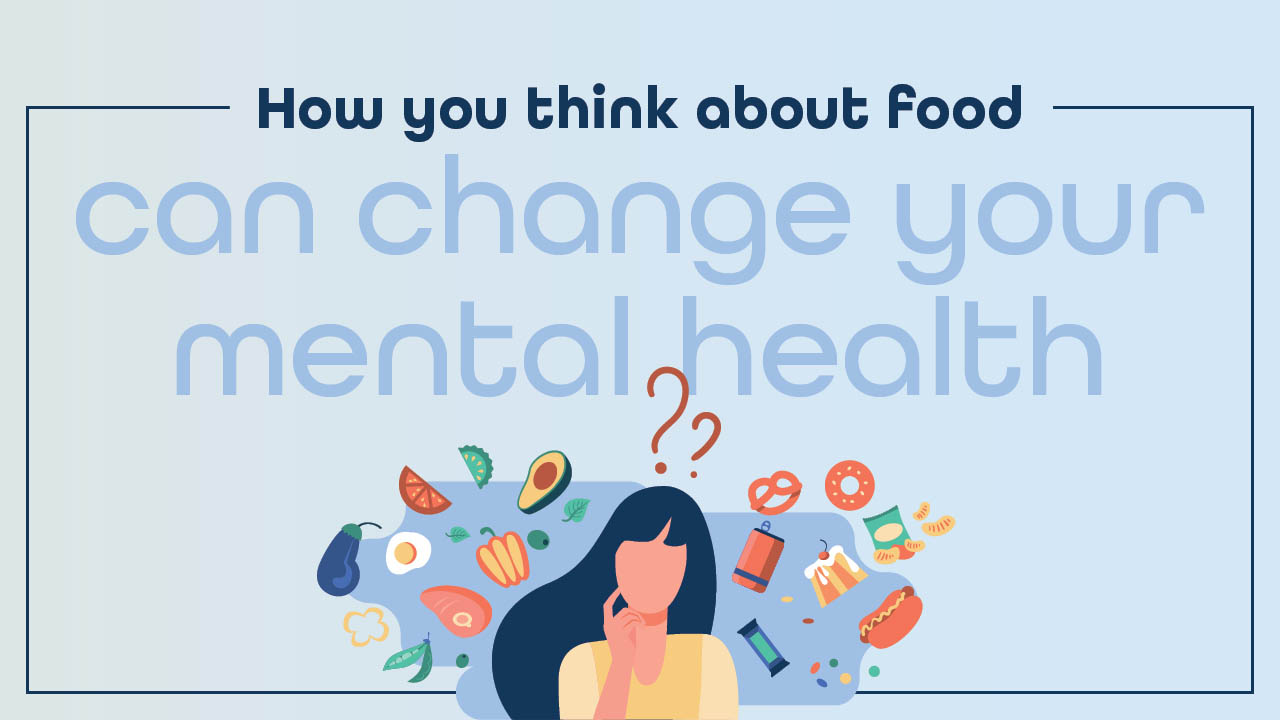How you think about food can change your mental health
 CREDIT: FSU PUBLICATIONS AND COMMUNICATIONS DEPARTMENT
CREDIT: FSU PUBLICATIONS AND COMMUNICATIONS DEPARTMENTYou shouldn’t be beefing with your food; it may be negatively contributing to your mental health.
Listen, we’ve all been there, whether you’re dieting or battling an eating disorder, it can all be stressful. Our emotional well-being is significantly correlated with our feelings and the physical nature of our bodies.
Moreover, in today’s time, through social media platforms like Instagram and TikTok, we are readily exposed to videos showing “what I eat in a day” from influencers. With filters and editors accompanying all camera features, our expectation for our appearance is becoming illusional.
Regardless of which media outlets you allow to influence your relationship with yourself, your desire to have a fit body shouldn’t feel like a punishment. In fact, a healthy mind-set is strongly connected to a healthy appearance. Understanding intuitive eating is one key to developing this healthy link between your physical and mental self.
Intuitive eating is a theoretical concept about one being in complete charge of their eating habits. Some of the underlying principles that doctrine this philosophy include neglecting diet mentality, understanding your hunger, and being content with your relationship with food.
Nutritionist, Somatic and Intuitive Eating Counsellor, Karri Wilson discussed the importance of intuitive eating.
“I am a registered holistic nutritionist and registered nutritional therapist,” she explained. “I spend a lot of time talking about food and feelings, and how people feel about what’s on their plate and what’s in their bodies.”
Wilson referenced babies as examples of intuitive eaters. A newborn’s cry is usually a signal for hunger. But, as we age, we allow society and mainstream media to dictate our eating habits and meal schedules. We allow a certain time to dictate when we should eat, and through this mentality we seek external validation for fulfillment. Additionally, Wilson’s goal is helping her clients become intuitive eaters again.
“The work that I do is really that kind of internal, intuitive, authentic journey of connecting back to your body, knowing how to best nourish your body and what it means,” she said.
Furthermore, Wilson revealed a significant increase in her clients over the past year, particularly in students who were living in residences for school but had to resort back to their homeland, due to the pandemic.
“A lot of these students have felt, you know, some old shame and guilt surrounding their food and eating,” she said. “I’m working with individuals who sometimes at home felt like they had to eat in secret and hide their food because they were made to feel that there was something wrong with their body, or something wrong with their eating habits.”
The frequent changes in an individual’s environment significantly affects their habits, especially their nutrition. The comments and praises made from family and friends greatly influence our self-worth. Seeking approval and assurance from others, for either losing or gaining weight, is imprisoning. It can lead you to becoming more anxious or depressed about everything you ingest.
Thus, many nutritionists, like Wilson, believe in body liberation and body acceptance as opposed to body positivity. Body positivity is a social movement used to help empower individuals in always admiring their figure. But Wilson believes that it’s crucial for people to accept their bodies even when they know it’s not looking the best.
“I don’t strive for body love,” she said. “I think we all have days where we don’t love our body. Let’s face it, I think even J-Lo has days where she gets up and doesn’t love herself. Because body image isn’t about our body.”
Recently, many professionals in the food industry including dietitians and nutritionists are battling more than media outlets. They are also trying to combat the effects of social media and its effects on the minds of young people. All in all, their hopes are to help people find peace in their eating habits and self-image. It’s important to research and seek professional help when you’re trying to achieve your goals. Remember, having a healthy mind-set throughout your healthy eating journey is crucial.
















